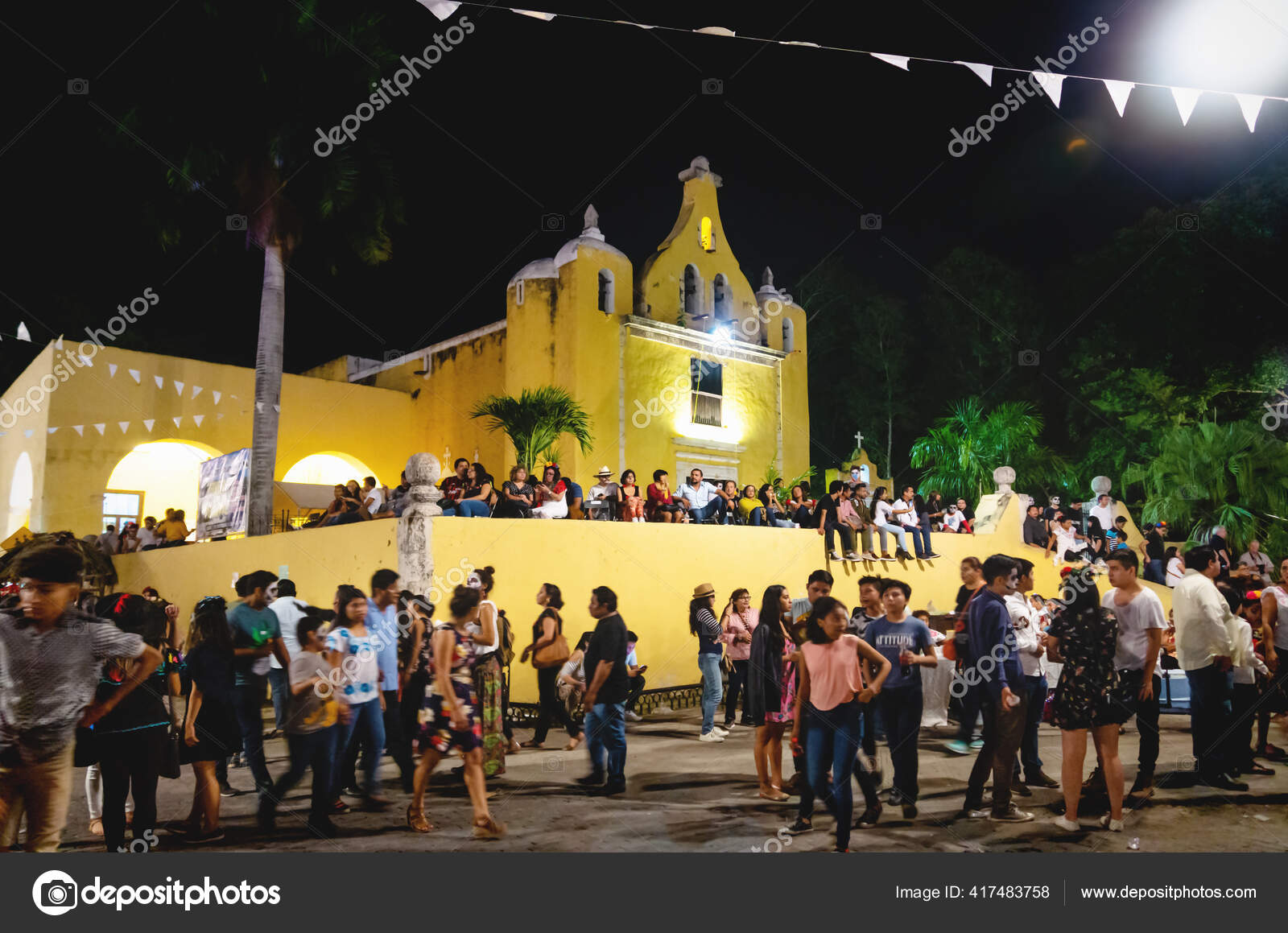¿Cómo vivimos y hablamos la Semana Santa? / How we live and talk Holly Week? - 5 minutos de español (5 minutes of Spanish). English & Spanish version + Podcast
How are you? Good
morning, good afternoon or good evening depending on where you are or what time
you are listening to us. In these five minutes of Spanish in the middle of the
week we are going to talk about how people live and talk about Semana Santa.
2021, as we all know, is not a typical year like 2020.
But normally Semana Santa is a time
when there are many Christian celebrations remembering the passion, death and
resurrection of Jesus.
Anyway, despite the
fact that not all Latin Americans are practitioners of a religion, Holy Week is
celebrated and in general the name of religious origin is maintained. It
coincides with school vacations and is two weeks in the case of Mexico.
Yes, parties, food and tourism. But this year is
different for the reasons already known.
Let's remember some
typical words of this time of the year:
Sacrificio-
es un cognado, los creyentes se refieren al sacrificio de Jesús en la cruz. /The belivers talk about sacrifice of Jesus
on the cross.
Also, we talk about another
cognate: Pasión de Cristo: Passion of Christ
Una práctica muy común son las procesiones- Otro cognado: processions
Los
católicos realizan procesiones para recordar la pasión de Jesús.
Holy Week processions are truly moving in Mexico and are a collage
of tradition, color and faith.
There are
several cities that are noted for these events, but this year we have no
processions.
Another word in Christianity is death and
resurrection.
El viernes santo se recuerda la muerte de Jesús / On Good Friday the death of Jesus is
remembered.
El domingo de Pascuas, para los cristianos, se celebra la
resurrección de Jesús
Easter Sunday, the Christians, celebrate the
resurrection of Jesus.
La Pascua es también una fiesta judía y este día, todos
comemos chocolate, conejos y huevos de Pascua.
Easter is also a Jewish holiday and this day we all
eat chocolate, rabbits and Easter eggs.
Vamos
a ver algunos verbos que se escuchan especialmente en esta semana:
We are going to see
some verbs that you can listen this week:
Rezar- to pray
Los creyentes rezan en Semana Santa / Believers pray during Holy Week-
Ayunar- to fast
El ayuno era una práctica común en estas fechas según nos
cuenta el Antiguo Testamento
Fasting used to be a common practice at this time
according to the Old Testament.
Nowadays, on Holy
Thursday there is a fast in which no beef, pork or chicken is eaten, but fish
is eaten.
It is a very easy fast, because spectacular dishes are
prepared with fish, but this... is for another 5 minutes.
When we say: desayuno means no- breakfast,
Cuando decimos “desayuno”, significa no ayuno,. the
prefix "des" is negation Match
with breakfast (break - fast) break the
fast
Another very common
verb is acampar, or to go camping,
but this year you won't hear it, as the campgrounds are closed.
So this week we have to... study Spanish!
And where to do it?
Here at Spanish in Cabo in our special online
quarantine courses or in our workshops.
And for you, who want
to practice Spanish in your own way, we have SpanishUp2U that will allow you to
practice when and where you want, in a fun way.
And how much does it cost?
1 dollar for the first
month
1 dollar?
Yes, to click here so you can start improving your
Spanish and speak like a Latin American.
Thank you very much for making it this far in the
podcast.
Happy Easter
See you soon
Bye, bye
¿Qué
tal? Buenos días, buenas tardes o buenas noches según el lugar en donde estés o a la hora en la que
nos escuches. En estos cinco minutos de español a la mitad de la semana vamos a
conversar sobre cómo se vive y se habla en la Semana Santa.
El
2021, como todos sabemos, no es un año típico al igual que el 2020. Pero
normalmente Semana Santa es una época en la que hay muchas celebraciones cristianas
recordando la pasión, muerte y resurrección de Jesús.
De todas maneras, a pesar de que no todos los latinoamericanos
somos practicantes de una religión, la Semana Santa se celebra y en general se
mantiene el nombre de origen religioso. Coincide con vacaciones escolares y son
dos semanas en el caso de México.
Sí,
fiestas, comidas y turismo. Pero este año es diferente por los motivos ya
conocidos.
Vamos a recordar algunas palabras típicas de esta época del
año:
Sacrificio- es un cognado, los creyentes se refieren al
sacrificio de Jesús en la cruz. /The
belivers talk about sacrifice of Jesus on the cross.
También se habla de la Pasión de Cristo- otro cognado: Passion of Christ
Una práctica muy común son las procesiones- Otro cognado: processions
Los
católicos realizan procesiones para recordar la pasión de Jesús.
Las procesiones de Semana Santa son realmente conmovedoras
en México y son un collage de tradición, color y fe.
Hay varias ciudades que se destacan por estos
eventos, pero este año no tenemos procesiones.
Otra palabra del cristianismo es muerte y resurrección
El viernes santo se recuerda la muerte de Jesús / On Good Friday the death of Jesus is
remembered.
El domingo de Pascuas, para los cristianos, se celebra la
resurrección de Jesús
Easter Sunday, the Christians, celebrate the
resurrection of Jesus.
La Pascua es también una fiesta judía y este día, todos
comemos chocolate, conejos y huevos de Pascua.
Easter is also a Jewish holiday and this day we all
eat chocolate, rabbits and Easter eggs.
Vamos a ver algunos verbos que se escuchan especialmente en
esta semana:
Rezar- to pray
Los creyentes rezan en Semana Santa / Believers pray during Holy Week-
Ayunar- to fast
El ayuno era una práctica común en estas fechas según nos
cuenta el Antiguo Testamento
Fasting used to be a common practice at this time
according to the Old Testament.
Hoy por hoy, el jueves Santo se hace un ayuno en el que no
se come carne de res, puerco o pollo, sí se come pescado.
Es un
ayuno muy fácil, pues se preparan platos espectaculares con pescado, pero esto…
es para otros 5 minutos.
Cuando decimos “desayuno”, significa no ayuno, el prefijo “des”
es negación. Coincide con breakfast (break
fast) – Romper el ayuno
Otro verbo muy común es acampar o sea, ir de camping, pero
este año no se va a escuchar, pues los campings están cerrados.
Entonces
esta semana nos queda… ¡estudiar
español!
¿Y dónde?
Aquí
en Spanish in Cabo en nuestros cursos especiales de cuarentena en línea o en
nuestros talleres.
Y para ti, que quieres practicar español a tu manera, tenemos
SpanishUp2U que te permitirá practicar cuándo y dónde quieras, en forma
divertida.
Y ¿cuánto
cuesta?
El primer mes 1 dólar
¿1
dólar?
Sí, para que pulses aquí
así comienzas a mejorar tu español y a hablar como un latinoamericano.
Muchas
gracias por llegar hasta aquí en el podcast.
Felices Pascuas
Hasta
pronto
Chau, chau



Comentarios
Publicar un comentario